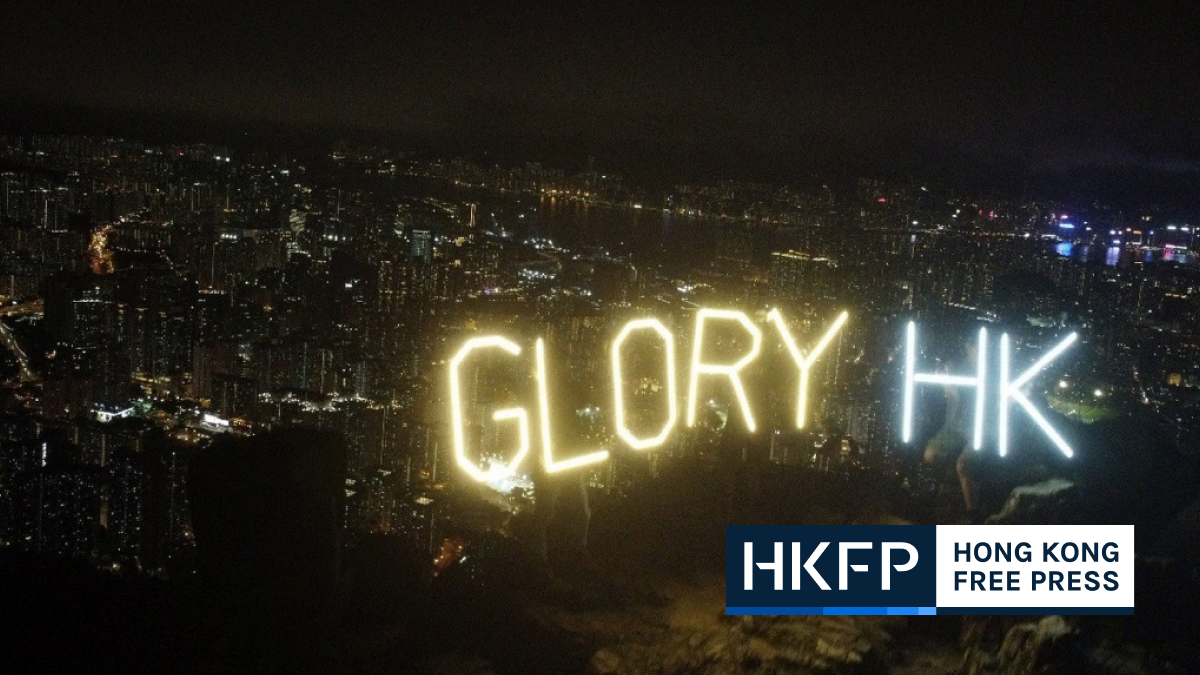Since pro-democracy protests erupted in Hong Kong last June, journalists have been on the front lines of civil unrest. Behind all the cameras and flash lights are not only the people from prominent news organisations, but also freelance and student journalists who insist on documenting the truth.
Laura Lee knew she wanted to be a journalist when she was in secondary school. At Hong Kong Shue Yan University, she embarked on her journey as a student reporter.
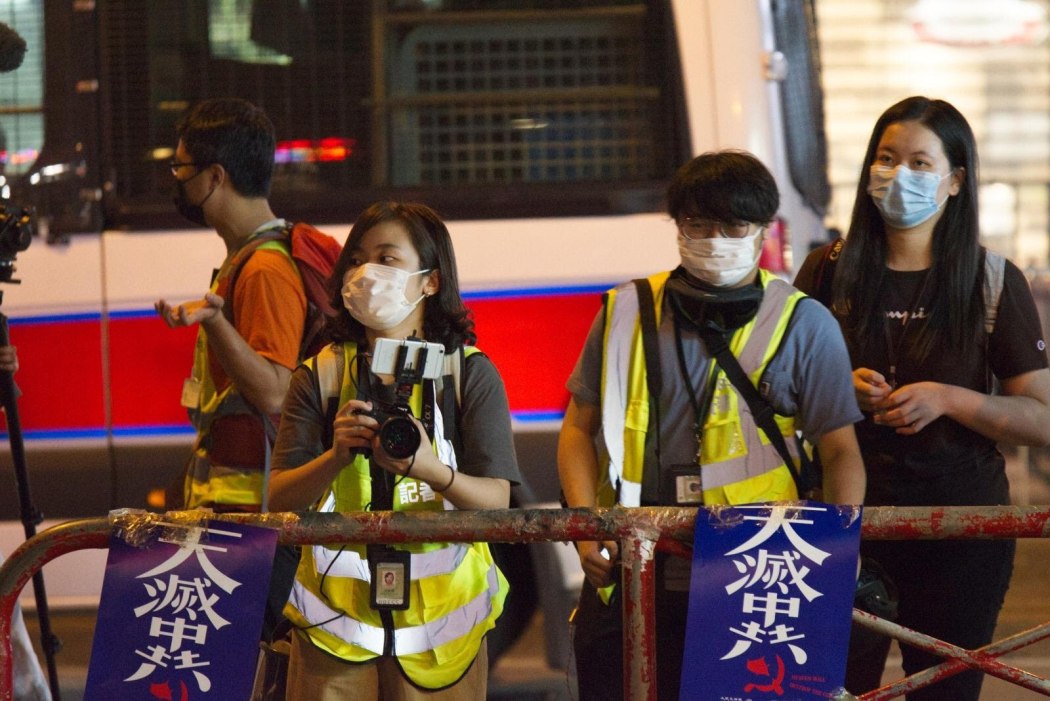
Approaching her final year of university, Lee became editor-in-chief of Shuo Online, an independent online news outlet run by journalism students at the university.
In her two years at Shuo Online, Lee has witnessed a decline in press freedom in Hong Kong. Over time, it has become harder for student reporters to do their job.
According to Reporters Without Borders, Hong Kong ranked 80th in the 2020 World Press Freedom Index , down from 73th in 2019. The group cited cases of police and pro-Beijing gang violence against journalists during the pro-democracy protests in the summer and autumn of 2019.
“Prior to the anti-extradition bill protests, we occasionally reported on events like the demonstrations on July 1, or the annual vigil for the Tiananmen square massacre,” said Lee. “Back then, the police wouldn’t go out of their way to hinder the media, and we were allowed to enter government press conferences as student media representatives.”
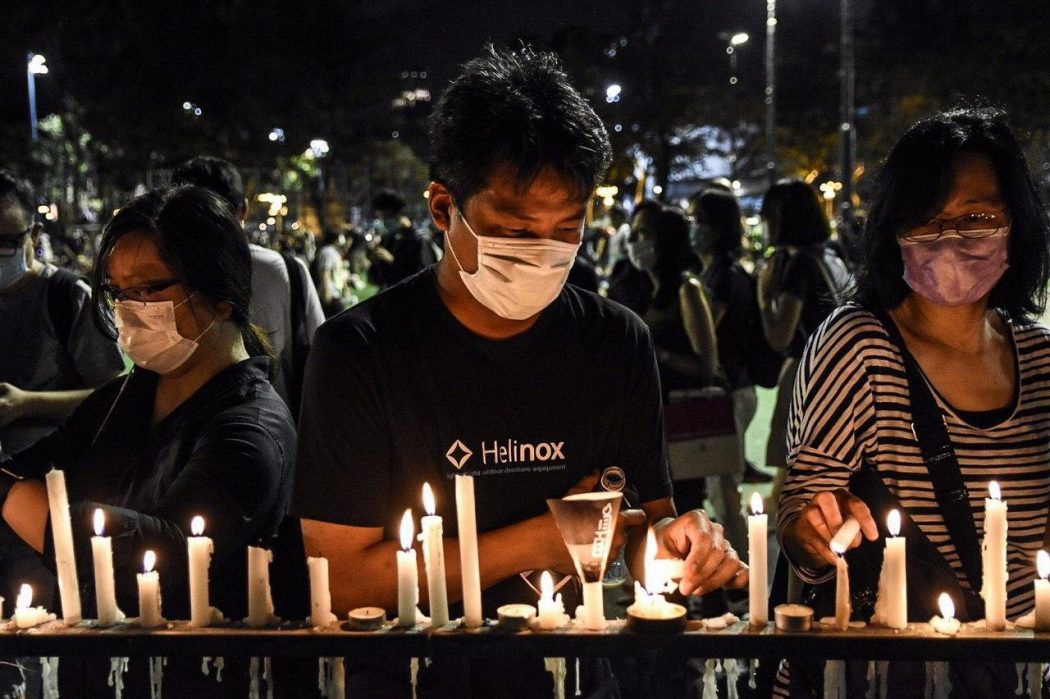
When a controversial extradition bill sparked last year’s citywide demonstrations, reporters at Shuo Online volunteered to cover them even though it was not part of their curriculum.
“At the beginning of the movement, the police rarely pushed us, but over time there has been an increase of use of force by the police against us, even though we were doing our job as reporters,” she said, adding that nowadays, the Police Public Relations Branch was less likely to respond when asked for comment.
“No matter how many times journalists condemn police brutality against journalists, or even publish joint statements to express their discomfort, I feel like the police just don’t care anymore.”
New regulations
On September 22, police announced a new policy of recognising only media representatives from government-registered or “internationally-known” organisations, excluding freelance and student journalists and newly-launched online media outlets. Press credentials issued by the Hong Kong Journalism Association and the Hong Kong Press Photographers Association are also not recognized under the new policy.
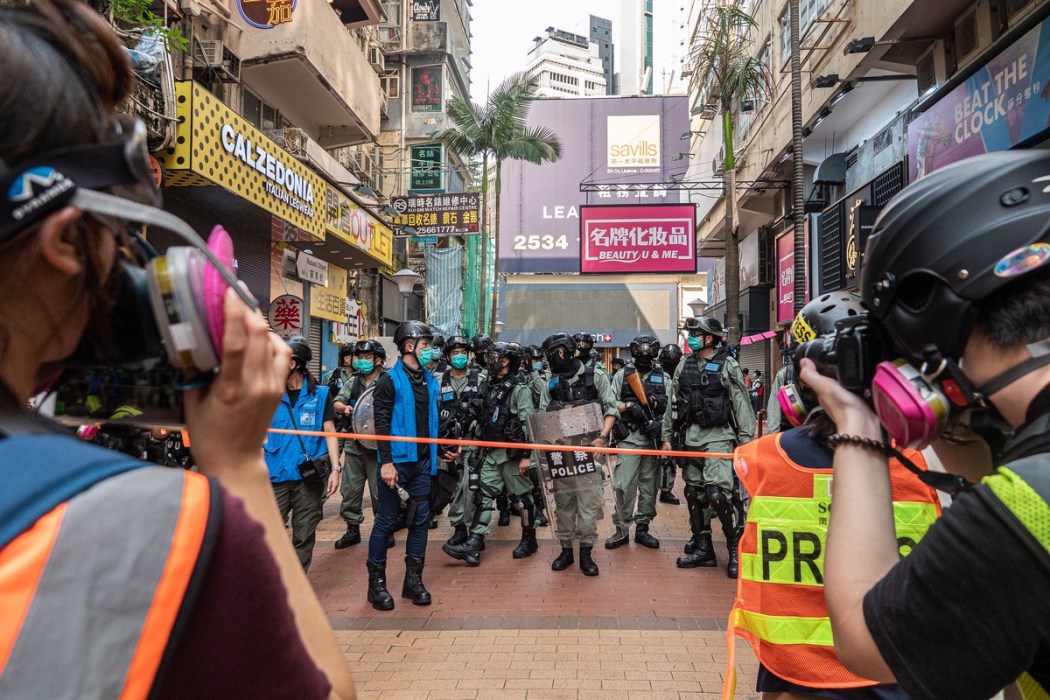
According to Chief Superintendent Kenneth Kwok of the public relations branch the change was due to the increase of “fake journalists” on site who “allegedly obstructed police work, and even assaulted police officers.”
Yuen Chan, a senior lecturer at the Department of Journalism at City, University of London, who formerly taught at the Chinese University of Hong Kong, said police are not qualified to determine the legitimacy of any journalist and the new policy is “infringing on the right of journalists to report on the front line and the public’s right to know.”
“They came up with the change and a regulation without any discussion,” she said. “If [the police] want to contemplate anything like that, we need to have a conversation and a consensus. You don’t just jump into it.”
Chan said the definition of a journalist should be left to the industry and not to a government agency.
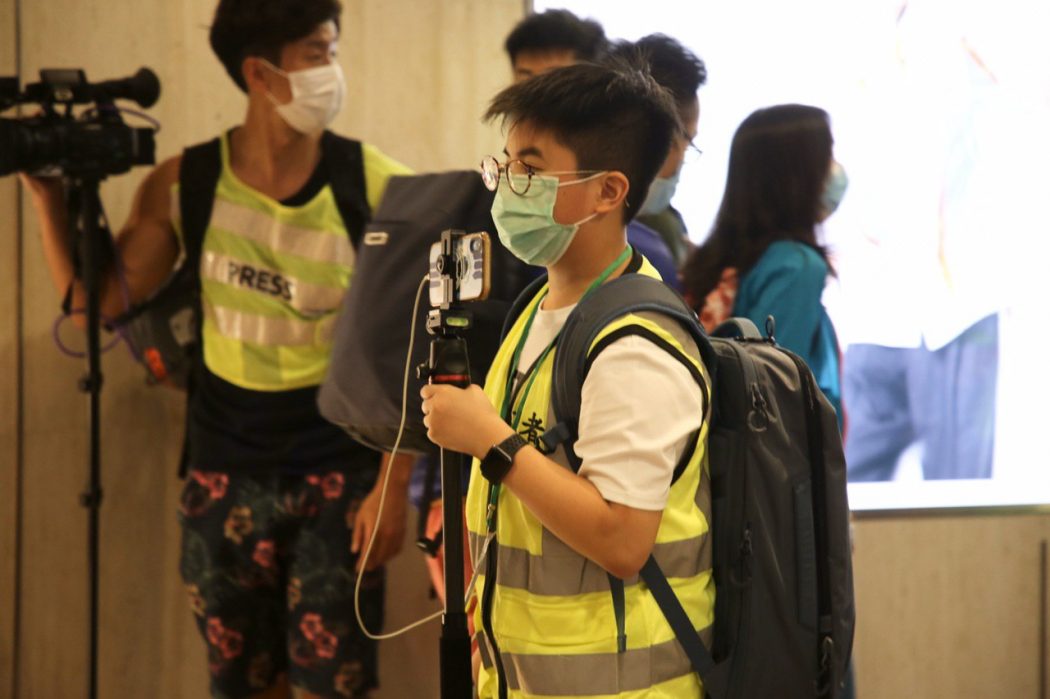
Lee said the police attempt to tighten controls over media using this new definition of media representative was “ridiculous” because a journalist’s legitimacy should not be determined by the police.
“Freedom of the press is granted by the Basic Law, so a law enforcement institution cannot decide whether or not we have the right to report.”
Lee said reporters from Shuo Online have not covered any demonstrations since July 21 after they learned that police fined journalists covering a shopping mall protest in Yuen Long. The team is still debating whether it should cover the upcoming demonstration on October 1, considering that student journalists risk arrest.
“Our team has been discussing ways to carry on with our reporting because we feel like we’ve missed out on a lot of crucial moments,” she said. “But we haven’t figured out a way to move forward when there is a high chance of us being arrested or fined.”
‘Serious blow’
In a statement on September 23, the Foreign Correspondents’ Club said it “firmly opposed” the new accreditation policy, which would further dismantle press freedom because it allows the police to determine who covers the police.

“The policy would be a serious blow for freelancers and student reporters — two groups of journalists who have provided some of the most compelling reporting from last year’s protests and police actions,” it said.
In response, the Commissioner’s Office of China’s Foreign Ministry in Hong Kong released a statement demanding the FCC “stop meddling with Hong Kong affairs on the pretext of press freedom.”
“Some anti-China troublemakers in Hong Kong who proclaimed themselves as journalists deliberately obstructed the police from enforcing the law and even assaulted police officers during the anti-amendment protests last year, hampering the interviewing and reporting work of other journalists and seriously undermining law and order,” the statement read, adding that the FCC was trying to endorse the rioters by “whitewashing fake journalists.”
In addition, the spokesperson stated that absolute press freedom above the law does not exist.
‘Multitude of voices’
According to Chan, there are two types of student media – those led by students but overseen by journalism lecturers and independent campus media and editorial boards run by students.
“A large number of journalism students and students acting as reporters for [student media] have been tireless in their reporting on the front line during the protests last year,” said Chan. “They have been very diligent and often get first-hand eyewitness reports that a lot of mainstream media did not manage to get.”

Chan said the student press is important in the sense that all press is important – as another voice that can produce and document stories for the Hong Kong audience.
“I think it is very important for any media ecology to have a multitude of voices, different perspectives and reports,” she said.
In the course of her journalism, Lee captured an incident in Hong Kong’s Central district in which a riot policeman lunged at a pedestrian to arrest him because he was wearing black.
She said the government’s restriction on student media and online media would mean fewer journalists available to hold police accountable. After online news outlets, freelance and student journalists were silenced, the government would further constrain press freedom.
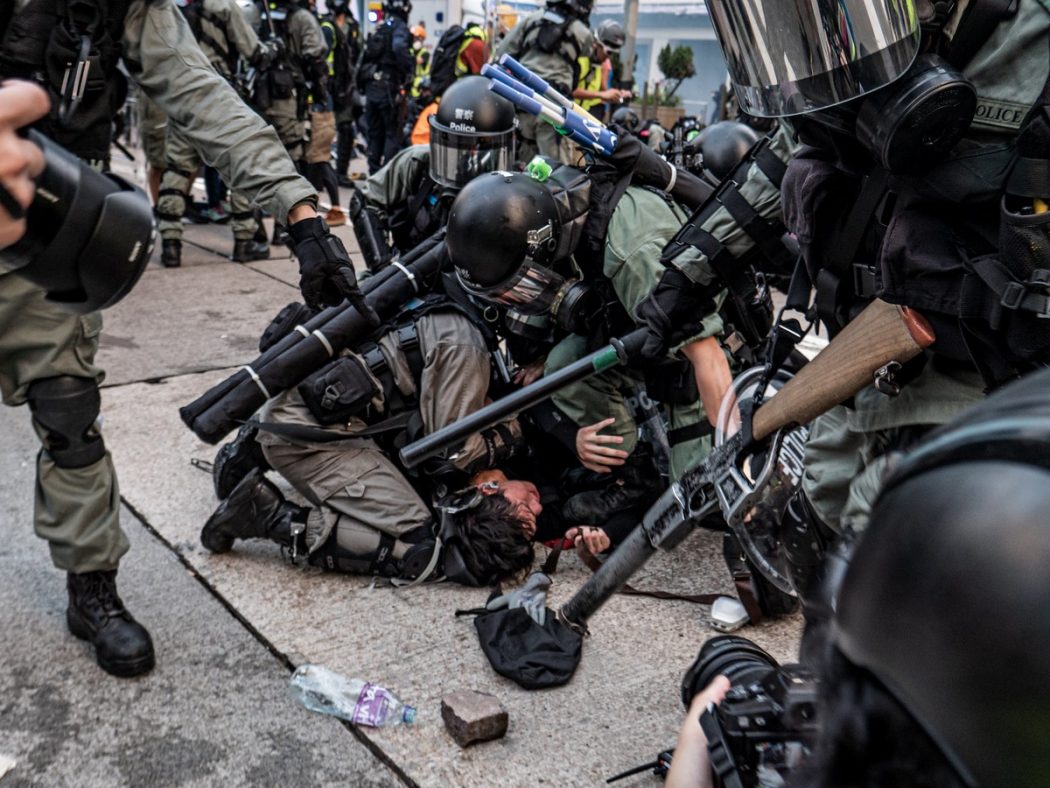
With the decline in press freedom, family members are suggesting that she seek a different career. After the enactment of the national security law, she realised there would only be more restrictions in the future.
“I feel powerless because there are so many things I want to do as a journalist, but I have learned there is no space for my future plans,” said Lee.
Besides working at Shuo Online, Lee tried covering sports, lifestyle, and writing for newspaper supplements for other news organizations. However, at the end of the day, she found covering politics and local news the most compelling.
“I think Hong Kong politics is where my heart is,” she said. “To me, being a news reporter allows me to make a bigger impact than being a sports reporter.”
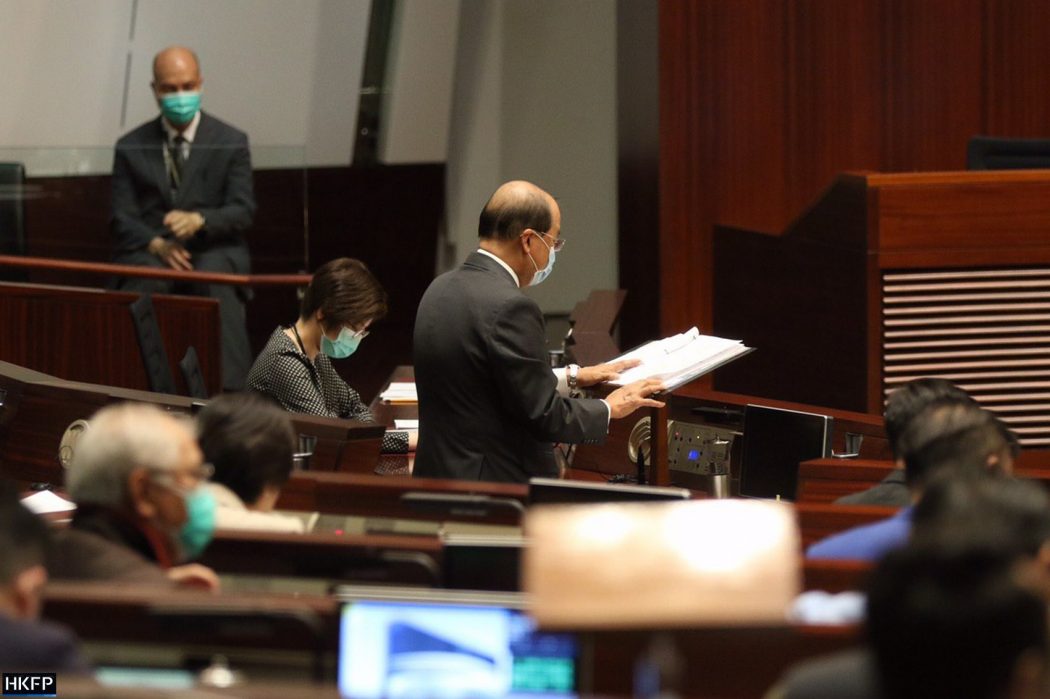
“Politics is closely related to every aspect of our society, and it is related to the public interest,” said Lee. “I’ve read a lot of investigative journalism to realise that our society needs journalists to expose wrongdoing.
“If not, the public will never know the truth, and those who are oppressed will continue to live in pain.
“I still hope to be a news reporter after I graduate,” she said. “I don’t think I will change my career path.”
‘Protect press freedom’
Shortly after the announcement of the new media accreditation rules, Tiffany Sit and other editors at U-Beat Magazine wondered what could be done.
They quickly contacted student press organisations across Hong Kong to compile a joint statement condemning what they saw as an attack on press freedom.
“We hope media organizations can stand up against the amendment and protect press freedom which we treasure. Although the future is tough, we will keep reporting to serve the community and defend the freedom of the press,” the statement read.
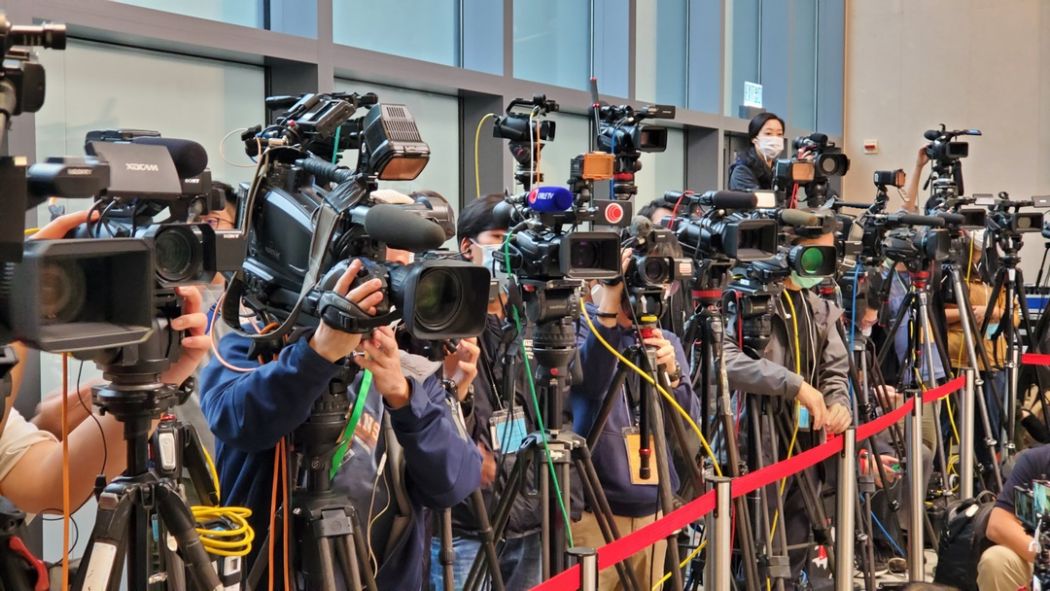
As the managing editor at U-Beat Magazine, run by students at the School of Journalism and Communication at the Chinese University of Hong Kong, Sit said they decided to release this statement along with other student media because student reporters shouldn’t stay silent while the government tightens control over the media.
“I think words are a journalist’s most powerful weapon,” said Sit. “If journalists refuse to speak truth to power, they are disarmed and those in power will continue to oppress them.”
When Sit was in Form Four, the Umbrella Movement of 2014 sparked her dream of becoming e a journalist. In her fourth year of university, she was a breaking news reporter for the Chinese University Student Press and covered various aspects of the anti-extradition bill protests.
But she foresees more restrictions and less freedom. She has thought of becoming an arts and lifestyle journalist or even working in public relations – safer career paths with fewer risks.

Keith Richburg, director of the Journalism and Media Studies Centre at the University of Hong Kong, said the current climate was challenging for student journalists because “press freedom has been rolled back so much in Hong Kong.”
Richburg added that with the new media accreditation amendment, student reports are at risk of being arrested and being charged with unlawful assembly.
He also said graduates had an opportunity to enter the industry as freelances, and therefore a refusal to recognise freelances was also harmful to university leavers.
Richburg said he understands and respects students who decide not to go into journalism, but strongly encourages those who want to be a journalist to “not be intimidated” by the city’s shrinking press freedoms.
“Press freedom is dead as far as I’m concerned, and if you want to have press freedom, it is up to these young journalists to stay out there, keep working and doing the job and don’t be intimidated by it,” he said.
“By the time we older folks are gone, we need to train the younger generation to get out there and do it,” he said. “I hope people continue to think it is a worthwhile profession.”

For Sit, other journalists’ perseverance in speaking truth to power inspires her to continue with her reporting.
“During the anti-extradition bill protests, you see a rise of online media, independent and student journalists,” she said. “A lot of them are aware of the potential risks, nevertheless they still go out and report and didn’t give up because the situation has escalated and worsened.”
“As journalists, the only way to protect freedom of the press is to keep on reporting,” she said, referencing a quote from The Post, a film about the Pentagon papers and Katherine Graham, the first female publisher at The Washington Post – “the only way to assert the right to publish is to publish.”
“I am definitely not the most hard-working journalist who gives their blood and sweat to cover social unrest,” she said. “But it encourages me to carry on when other journalists are striving to safeguard press freedom and I don’t think I should give up yet.”
Support HKFP | Policies & Ethics | Error/typo? | Contact Us | Newsletter | Transparency & Annual Report | Apps
Help safeguard press freedom & keep HKFP free for all readers by supporting our team

























